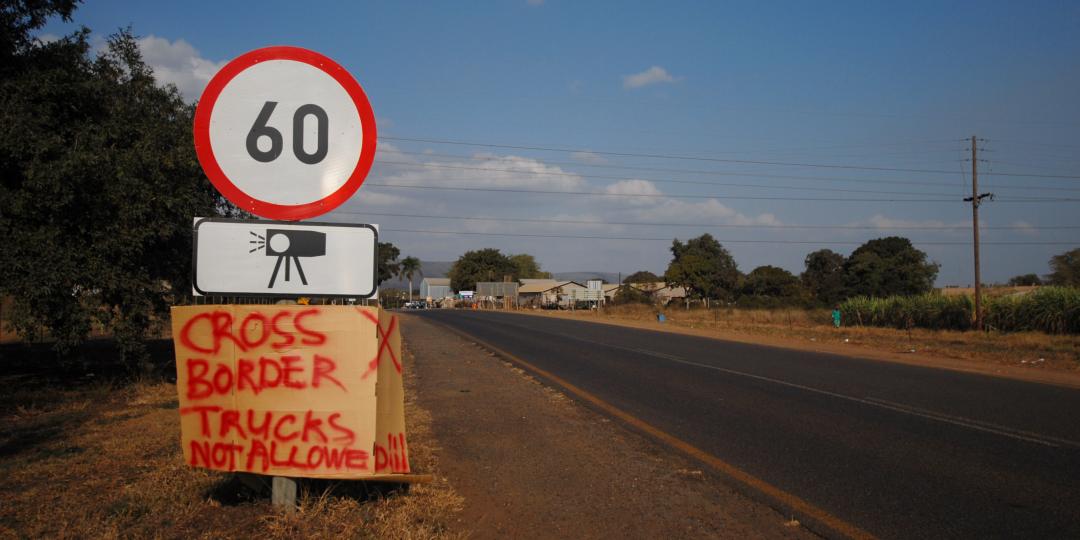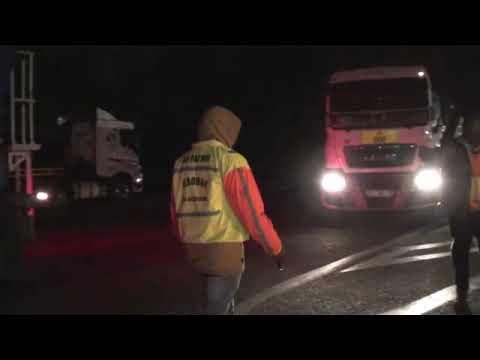Komatipoort used to be a sleepy little village, tucked away in a fertile valley where the confluence of the Crocodile and Komati forms the Incomati, a rich vein running southeast towards the Port of Maputo.
It is not the only artery that cuts through this corner of the country, crossing the border towards southern Africa’s most efficient port – as per data from the World Bank’s Container Port Performance Index.
Located right next to South Africa’s N4 highway, Komatipoort’s community has for years been fighting a desperate battle to reclaim the peace and quiet for which it was once known.
But the tranquility and laid-back lifestyle it had has been lost to the volume of trucks that ship ore to Sub-Saharan Africa’s best-run port.
As things stand, services and systems on both sides of the border, at Lebombo in South Africa and Ressano Garcia in Mozambique, are at best overwhelmed by the demand for commodities like chrome and coal that are shipped from mines in Limpopo and Mpumalanga to Maputo’s privately run terminals.
At worst, systems and services between the two countries are not synchronised, making for double-stop bureaucracy, often compounded by corrupt border staff and slack service levels.
Add regular downtime of digitised requirements, and the “Komatipoort queue”, as it has become known, often grows up to 20 kilometres from the border.
Unfortunately, it is the human element that is mostly to blame.
In April last year, private-sector pressure resulted in the border becoming a 24-7 transit all year round.
For that to work properly though, wholesale labour buy-in is required, which sadly is not the case.
Freight News understands that the night-time shift change wreaks havoc on processing because immigration shuts down for up to two hours as one lot from the Department of Home Affairs leaves and another shuffles into position, as if time is simply not an issue.
The only urgency noticeable at night, when traffic officials withdraw because they don’t get paid overtime and only a handful of police remain to guard the peace, if not collecting bribes, comes from thugs exploiting drivers camping out in their trucks, often for two days or more.
Because of the chaos at night, when tipper trucks skip the queue, congesting the N4 closer to the border gate, it has hardly come as a surprise that taxi associations have become involved because of the threat a closed road poses to their bottom line.
Dressed in reflective vests and armed with sjamboks, they take no bullsh*t, to be very frank about it.
If drivers step out of line, they are forced to turn their trucks around to the back of the queue, a total pressure-cooker situation if you work for a transporter supplementing low pay with incentives paid per load.
Worst-case scenario – queue jumpers have tyres deflated, requiring breakdown teams by the likes of Van Wettens towing in Malelane to come and assist. Cost aside, a truck can be stuck for two hours or more if rendered immovable.
To warn drivers against unruly behaviour, taxi marshals drive up and down the queue with a speaker system mounted on the back of a pickup, broadcasting their message of “skip the queue and suffer the consequences”.
The same goes for trucks thinking they can bypass the queue by using alternative roads such as the Coopersdal Road to the southeast, linking back with the N4 via the Strydomblok Road going northeast.
The R571 Mananga Road skirting the border with Mozambique toward Swaziland is another, as well as the Tenbosch Road looping round to Komatipoort south of Marloth Park and the area’s Crocodile River boundary with the Kruger National Park.
These arterial roads are not meant for heavy trucks, save those that collect sugar cane from the vast sweep of farmland on both sides of the “Maputo Corridor.”
Sometimes they also have to be used by general cargo trucks bringing supplies to places like Ngwenya Lodge on the Tenbosch Road, especially when Komatipoort gets completely cut off by the gridlocking mess of a few weeks ago when the SA Revenue Service’s systems were routinely offline.
Talk to the business folk from Komatipooort and they relate how their town was completely sealed off by trucks, unable to move at all.
Tourism has dropped 25%, coming as it does at a very bad time since the local economy is still in recovery from the Covid-related lockdown restrictions.
The Kambaku Golf Club, situated where the Crocodile joins the Komati, has cancelled tournaments because four-ball visitors feared that they would not be able to get to the country club.
Freight News knows of an urgent delivery to Komatipoort that was made by using the Crocodile River Road in the Kruger.
Cobus Botha, who grew up in Komatipoort and runs the local Nkomazi Oos Boerevereeniging (agricultural association), said he had moved his family to town so that it was safer for his wife to ferry their children around for sport commitments at night.
“It’s not safe,” he said.
“Sometimes my wife has to go and fetch our son from wrestling practice. When we were still on the farm it meant she had to cross the N4, blocked up with trucks.”
A supplier of appliances to the farming community, who didn’t want to be named, said recently she had been forced to walk home because the road in front of her store, including her company premises, had become a truck stop for tippers waiting to cross into Mozambique.
And on the road to the Crocodile Bridge Gate into the Kruger, the community of Orlando has rallied around, forming what is called the Komati Marshals, waiting on the side of the R571, stopping tipper drivers from entering Komatipoort.
Their overall message is clear, scribbled on a piece of cardboard fastened to a speed-restriction sign: “Cross-border trucks not allowed.”
Said a local business leader: “People are gatvol! (fed up).”
"We just want things to return to the way it used to be," Botha said.
WATCH: Early one morning in the queue at the Lebombo border...














